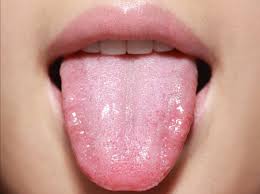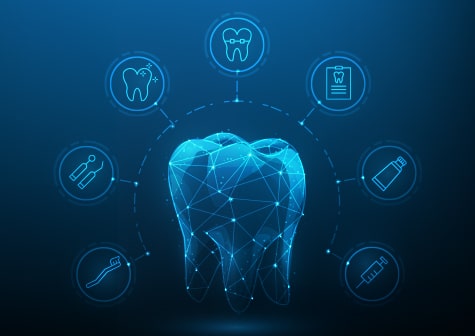Burning Mouth Syndrome (BMS) is a complex and often frustrating condition characterized by a persistent burning or scalding sensation in the mouth without an apparent cause. Affecting areas such as the tongue, lips, and inner cheeks, BMS can significantly impact daily life and overall well-being. In this article, we’ll explore how dentists diagnose and treat this condition, ensuring patients find relief from oral discomfort and addressing potential underlying causes.
What Is Burning Mouth Syndrome?
Burning Mouth Syndrome is defined as a chronic oral pain condition that lacks an obvious cause such as infection, injury, or inflammation. It primarily affects women, particularly those who are postmenopausal, though it can occur in anyone.
Common Symptoms of BMS:
- A burning or scalding sensation in the tongue, lips, gums, or throat.
- Increased pain throughout the day, with relief during sleep.
- Altered taste perception (e.g., metallic or bitter taste).
- Dry mouth or excessive thirst.
These symptoms often occur without visible changes in the oral tissues, making diagnosis challenging.
Diagnosing Burning Mouth Syndrome
Since BMS lacks a clear physical cause, diagnosis involves a systematic process to rule out other conditions. Dentists and healthcare providers take a multi-step approach:
1. Medical and Dental History Review
Patients are asked about their symptoms, health history, medications, and lifestyle factors that may contribute to oral discomfort. Questions may include:
- When did the burning sensation start?
- Are there any triggers or factors that alleviate the symptoms?
- Are you experiencing stress, anxiety, or hormonal changes?
2. Oral Examination
A thorough exam helps rule out conditions like infections, allergies, or irritation from dental appliances or restorations.
3. Diagnostic Tests
- Blood Tests: To identify deficiencies in iron, zinc, folate, or Vitamin B12, as well as conditions like diabetes or thyroid dysfunction.
- Allergy Tests: To check for reactions to dental materials or foods.
- Saliva Tests: To evaluate dry mouth or salivary gland function.
- Nerve Testing: To determine if nerve damage or dysfunction may be causing the symptoms.
4. Referral to Specialists
In some cases, dentists collaborate with neurologists, endocrinologists, or psychologists to rule out systemic or neurological causes.
Treating Burning Mouth Syndrome
Treatment for Burning Mouth Syndrome focuses on symptom management and addressing potential underlying causes. Since BMS is often multifactorial, a combination of approaches is usually required.
1. Nutritional and Lifestyle Adjustments
- Addressing Deficiencies: Supplementing missing nutrients like Vitamin B12, iron, or zinc may alleviate symptoms.
- Dietary Changes: Avoiding acidic, spicy, or irritant foods and beverages that exacerbate oral discomfort.
- Hydration and Saliva Stimulation: Drinking more water or using sugar-free lozenges to combat dry mouth.
2. Medications and Topical Treatments
- Nerve Treatments: Dentists may prescribe medications such as tricyclic antidepressants, gabapentin, or clonazepam to modulate nerve activity and reduce pain.
- Topical Applications: Capsaicin rinses, lidocaine gels, or aloe vera can provide localized relief.
3. Stress and Anxiety Management
Since stress and anxiety are often linked to BMS, incorporating relaxation techniques, cognitive-behavioral therapy (CBT), or antidepressants can help manage symptoms.
4. Oral Care Adjustments
Switching to mild, non-irritating oral hygiene products (e.g., toothpaste without sodium lauryl sulfate) and ensuring proper dental hygiene can prevent aggravation.
Advanced Treatments for Persistent Cases
For patients with severe or persistent Burning Mouth Syndrome, advanced approaches may be necessary:
Nerve Stimulation or Block
Targeting affected nerves through procedures like nerve stimulation therapy or nerve blocks may help reduce chronic pain.
Laser Therapy
Low-level laser therapy has shown promise in reducing pain and promoting nerve healing in BMS patients.
Customized Care Plans
For patients with secondary causes (e.g., allergies, systemic disease), tailored treatments addressing the underlying condition are crucial for long-term relief.
Living with Burning Mouth Syndrome
While Burning Mouth Syndrome can be challenging to manage, early diagnosis and a personalized treatment plan can significantly improve quality of life. Patients are encouraged to maintain open communication with their dentist and healthcare providers, as ongoing adjustments to treatment may be needed to find what works best.
Burning Mouth Syndrome is a complex condition that requires a careful diagnostic process and a multidisciplinary approach to treatment. By addressing factors like nutritional deficiencies, nerve dysfunction, and emotional stress, dentists can help patients manage oral discomfort and improve their overall well-being. If you suspect you have BMS, consult with a dental professional for a comprehensive evaluation and personalized care.





